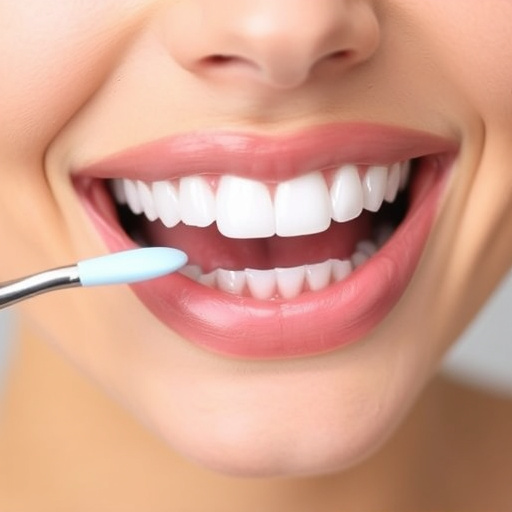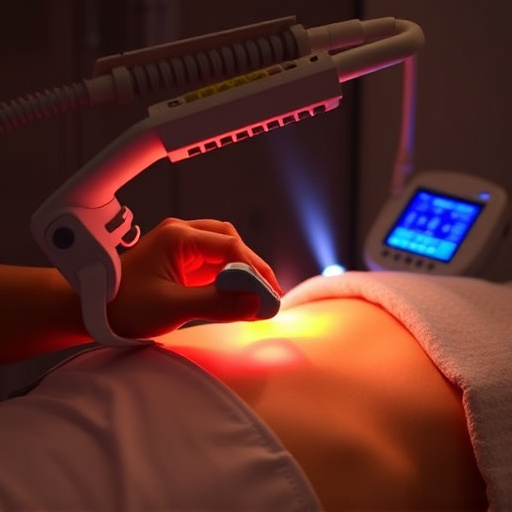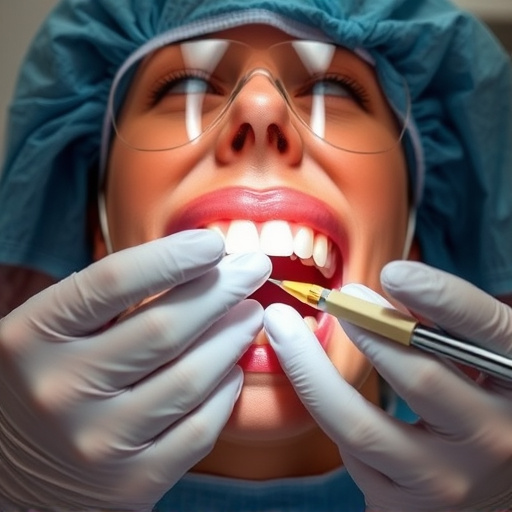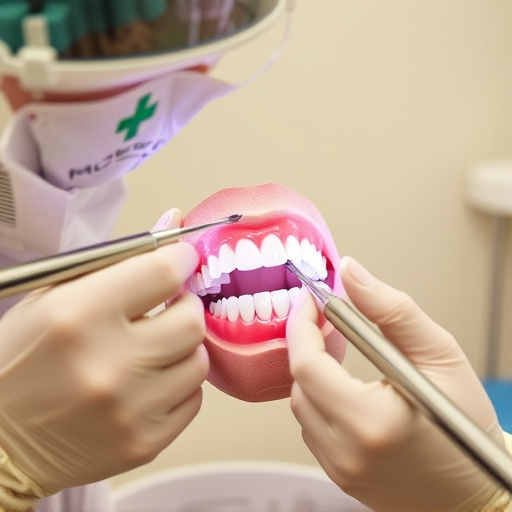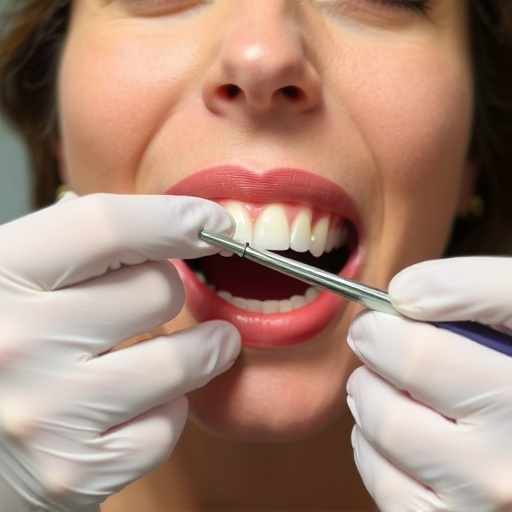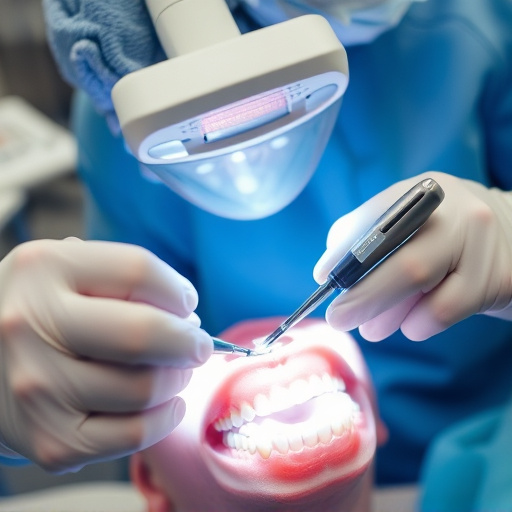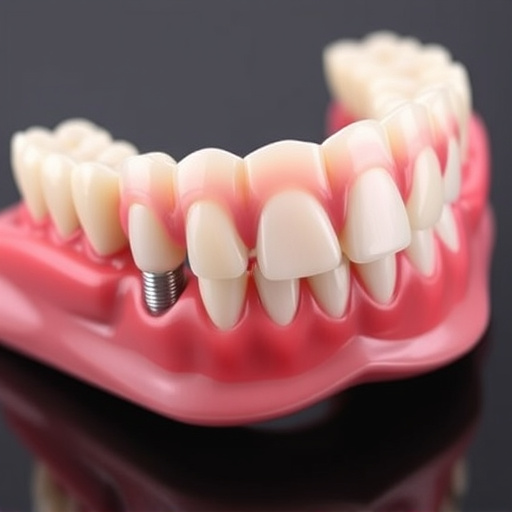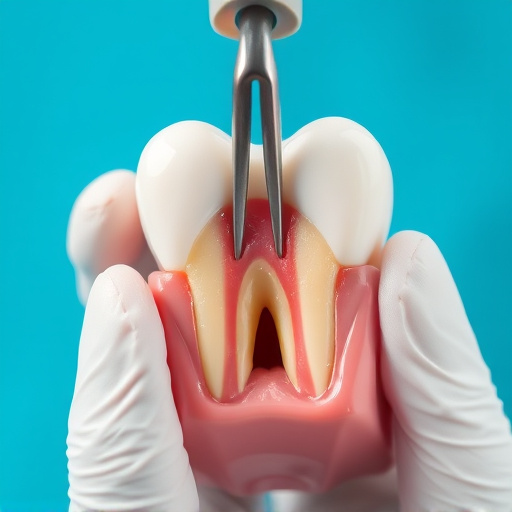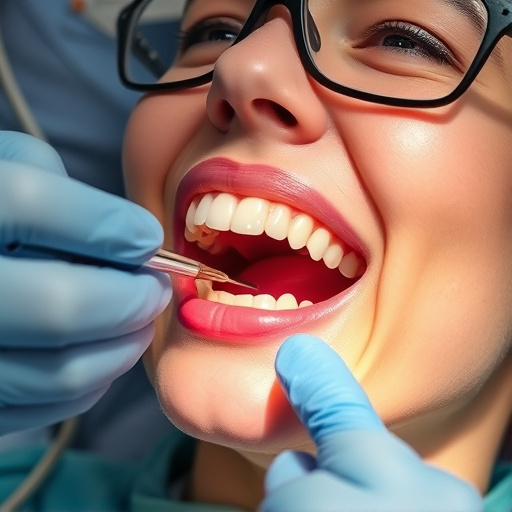A full mouth restoration is a comprehensive dental solution addressing multiple oral issues simultaneously, including missing teeth, gum disease, and misalignments. This involves procedures like wisdom tooth removal, dental implants, and preventive dentistry. Implants support facial structure, boost confidence, and maintain natural contours. Post-recovery care, including proper hygiene, pain management, and regular check-ups, ensures long-term success.
Consider a complete transformation for your oral health and facial structure—that’s what full mouth restoration offers. This comprehensive approach addresses all teeth and supporting structures, providing a new smile and enhanced facial symmetry. In this article, we’ll explore the essentials of full mouth restoration, delving into diagnosis, the integral role of dental implants in facial support, and post-procedure recovery to ensure long-term success for a confident, functional outcome.
- Understanding Full Mouth Restoration Needs
- The Role of Dental Implants in Facial Support
- Recovery and Long-Term Care After Full Mouth Restoration
Understanding Full Mouth Restoration Needs

A full mouth restoration is a comprehensive dental procedure designed to rejuvenate and revitalize your entire oral cavity. This process goes beyond simple cosmetic improvements; it aims to restore functionality, comfort, and structural integrity. Understanding what constitutes a full mouth restoration is crucial for anyone considering this transformative journey.
It often involves a series of treatments including wisdom tooth removal, dental implants, and sometimes even preventive dentistry measures. The need for such a comprehensive approach arises when multiple dental issues coexist, such as missing teeth, damaged or decayed enamel, gum disease, and misalignments. By addressing these concerns simultaneously, a full mouth restoration not only improves your smile but also supports the overall facial structure, enhancing your overall well-being and self-confidence.
The Role of Dental Implants in Facial Support

Dental implants play a pivotal role in supporting facial structure following a full mouth restoration procedure. When teeth are lost due to decay, injury, or disease, the jawbone begins to deteriorate, leading to facial collapse and a aged appearance. Implants act as artificial tooth roots, providing secure anchors for crowns, bridges, or dentures. This not only restores functionality but also prevents further bone loss and maintains the natural contour of the face.
In many cases, general dentistry practices offer implant solutions as part of a comprehensive full mouth restoration plan. After careful planning and guidance from dental professionals, patients can expect improved aesthetics, increased chewing efficiency, and enhanced overall oral health. In combination with procedures like tooth extractions and dental bonding, implants contribute to a more youthful and confident appearance, addressing both functional and cosmetic concerns.
Recovery and Long-Term Care After Full Mouth Restoration

After a full mouth restoration, recovery is a crucial phase that ensures the longevity of the treatment. It’s essential to adhere to post-operative guidelines provided by your dental care team. This may include resting adequately, maintaining good oral hygiene, and avoiding strenuous activities for a period specified by them. Additionally, managing pain and swelling with prescribed medications can significantly aid in the healing process. During this time, it’s also vital to maintain a balanced diet, focusing on soft foods that are easy to chew and won’t irritate the treated areas.
Long-term care involves consistent comprehensive dental care, including routine oral exams. Regular check-ups ensure any potential issues are addressed promptly. For example, if dental implants were part of your restoration, proper care and maintenance are necessary to prevent complications. Keeping up with daily brushing, flossing, and using mouthguards during sleep can help preserve the integrity of the work done. Moreover, continuing with routine oral exams allows your dentist to monitor your overall oral health and detect any changes that might affect your previously restored teeth and gums.
A full mouth restoration isn’t just about achieving a beautiful smile; it’s about restoring facial structure, enhancing quality of life, and ensuring long-term oral health. By combining advanced dental techniques like dental implants with meticulous care during recovery, individuals can expect substantial improvements in both appearance and functionality. This transformative process offers lasting solutions for those seeking to reclaim their confidence and overall well-being through a comprehensive full mouth restoration.
